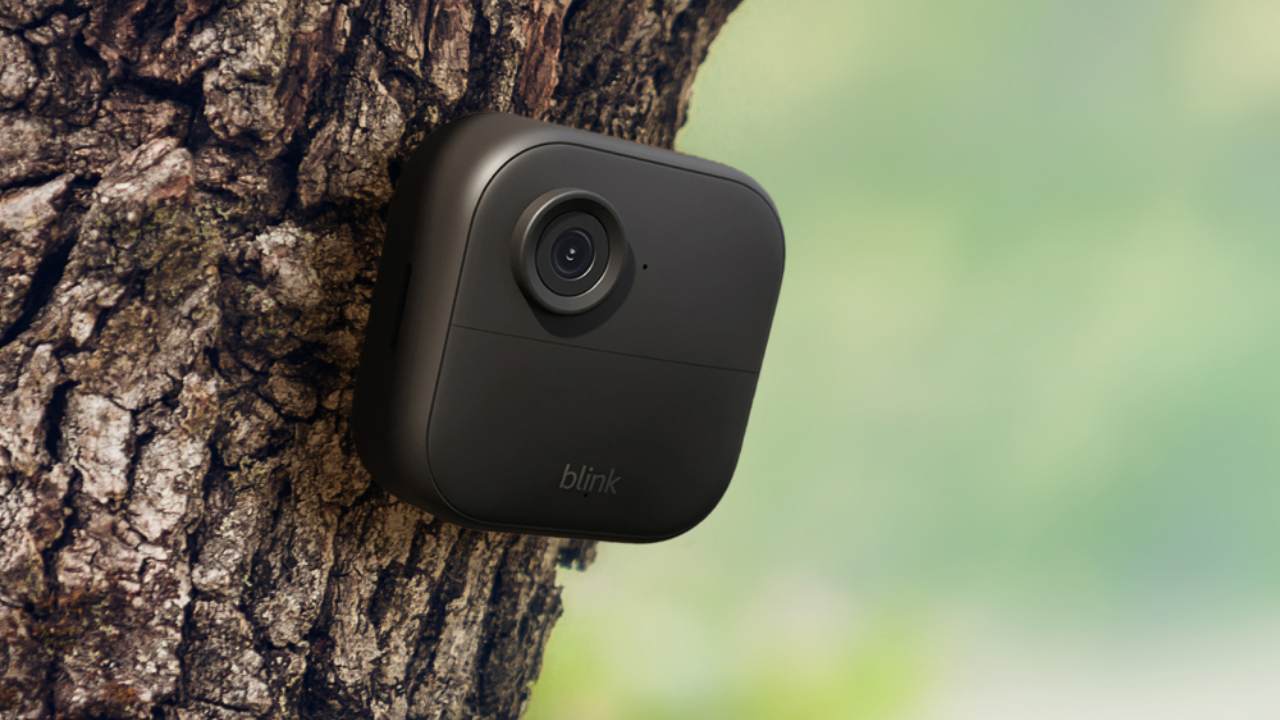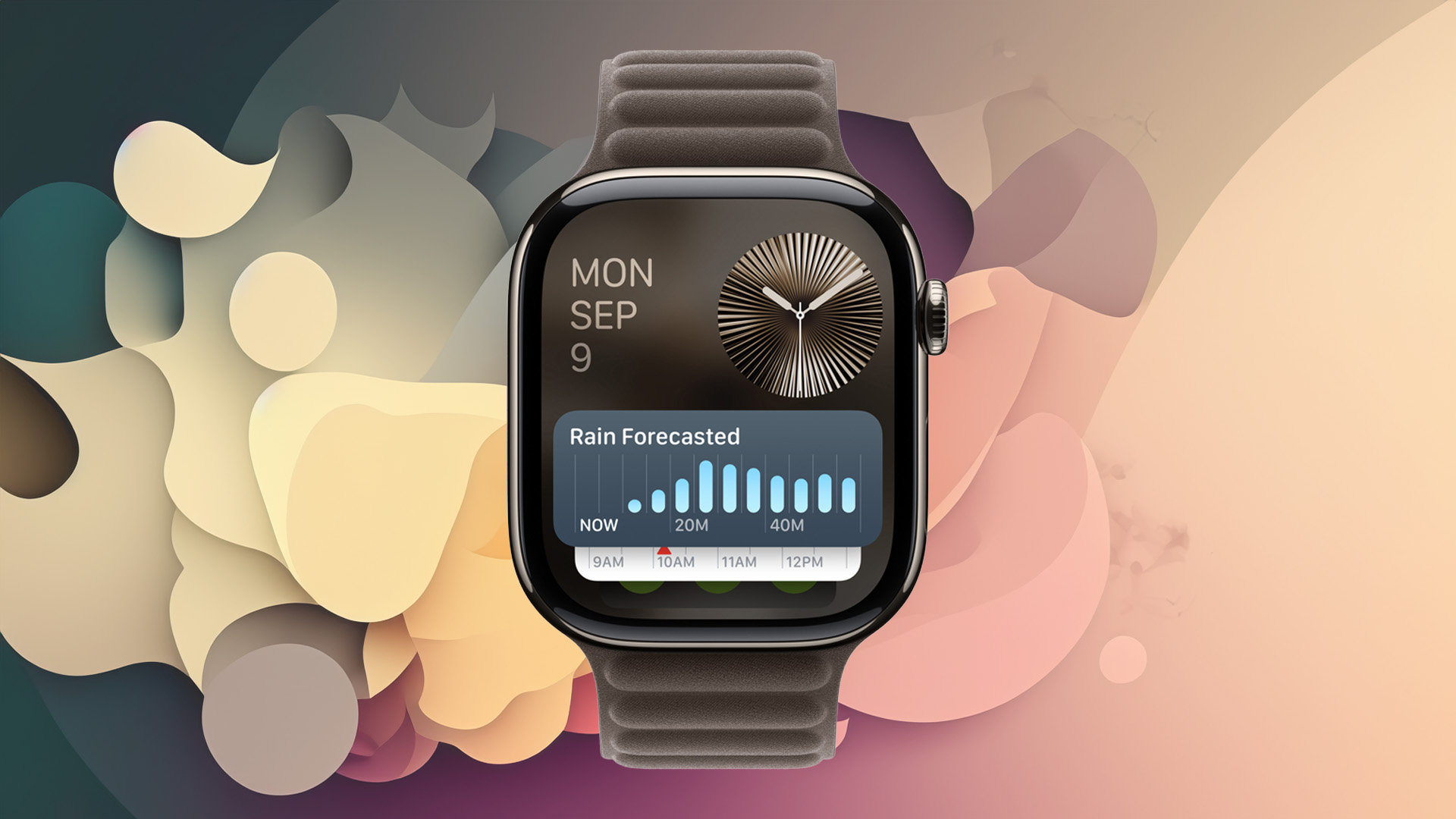

Have you noticed how few smokers there are these days? The rise of vapes and vaping means this may seem like a stupid question to anyone under the age of 40, but it never used to be like this. I once posted a video on YouTube of our old Time Out magazine office in London, circa 1982, and practically everyone was smoking at their desks. It was the norm for most offices ‘in them days’ and the norm pretty much everywhere else.
Back then, you could smoke in restaurants and cinemas, in the last carriage on the Underground, even on commercial airliners (all smokers gravitated towards the rear seats). We were the generation that grew up surrounded by ad campaigns with celebs like Frank Sinatra puffing on a Chesterfield and comedian Phil Silvers on a Camel. One outrageous full page ad from 1946 even had the gall to say that ‘more doctors smoke Camel than any other cigarette’.
Of course this all occurred before the medical fraternity spotted the glaringly obvious links between smoking and a slew of killer illnesses and, before long, smoking was banned on the tube, in planes and, by 2007, all enclosed public and workplaces. Yet people continued to smoke regardless, mostly because of one primary element – the highly addictive properties of nicotine.
As any smoker will testify, kicking a nicotine addiction is bloody difficult and, for some, nigh on impossible. Medicinal nicotine patches certainly help quell the urge, but they still fail to fulfil the other two habitual ‘qualities’ of smoking: nicotine grip in the throat and the sight of smoke being exhaled. Enter the vape, vaporiser, vape, e-cigarette, 'heated tobacco product' and various other subtle variations on the theme of vaping.
This clever little battery-powered device is not only able to deliver a substantial hit of nicotine, but the vapour it produces looks just like real tobacco smoke, only more voluminous. As a result, vaping is now one of the fast growing industries on the planet. According to some sources, ‘the global e-cigarette and vape market was valued at $15 billion in 2020 compared with $3 billion in 2016’, and it’s expected to grow even further. Apparently there are over three million vapeurs in the UK and we have a guide to the best vapes just for them. But before you start vaping – or continue vaping come to that – here's what you need to know about vapes.
IS VAPING BAD FOR YOU?
The American Lung Association cuts straight to the chase – ‘inhalation of harmful chemicals from vaping can cause irreversible lung damage and lung disease. Vaping liquid contains over 80 chemicals including nicotine, cancer-causing chemicals and toxic heavy metals such as nickel, tin and lead, all of which are associated with developing lung disease.’ So there you go. If you want to learn more about the effects of vaping, simply Google it – but prepare to wade through thousands of pages in the process.
In the meantime, take note that the US Food and Drug Administration has already banned fruit and mint flavours in all sealed cartridge-based vaping systems, mostly to dissuade kids from taking up vaping.
Sign up to the T3 newsletter for smarter living straight to your inbox
Get all the latest news, reviews, deals and buying guides on gorgeous tech, home and active products from the T3 experts
WHAT IS A VAPORISER?
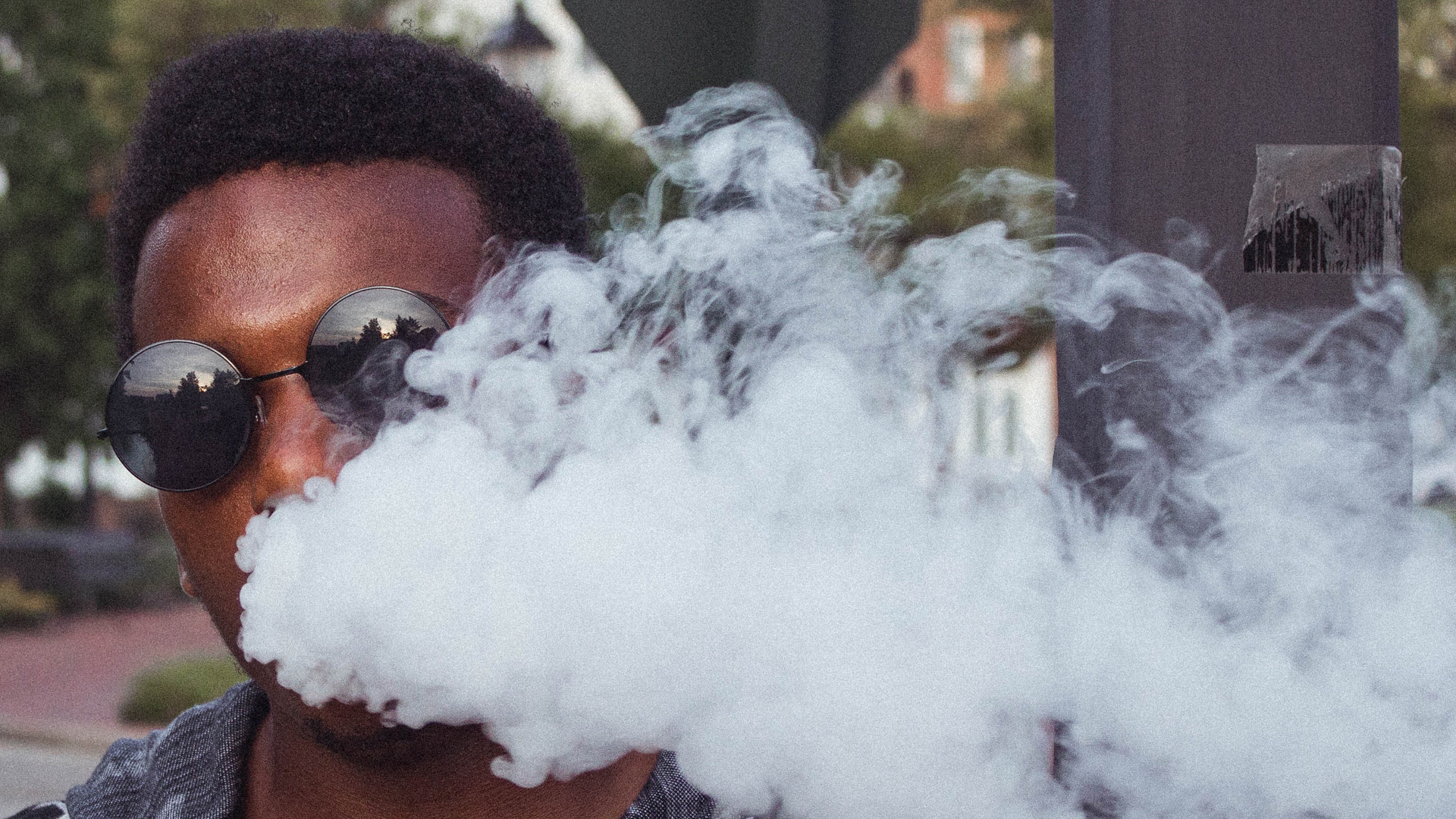
The great thing about vaporisers is that the smoke being exhaled isn't actually smoke; it's nicotine-infused vapour (a sort of steam) which evaporates in a flash leaving no long-lasting smells or residues in its wake. Okay, if you're a non-vapeur, it does stink if you walk through a cloud of it, but your clothes won't smell of synthetic fruit afterwards, which is a step up from fags.
There are four main types of vaporiser on the market and these can be divided into two categories – e-liquid and loose leaf. E-liquid vaporisers come in two forms: refillable and sealed pod. In a nutshell, refillable models allow you to choose from a myriad of different e-liquids with a wide variety of flavours and strengths. Capsule vapes use sealed pods that are pre-filled with e-liquid. You can find our more about e-liquids by checking out our dedicated feature to the Best E-liquids You Can Buy.
Loose leaf vaporisers also come in two styles: heat-not-burn tobacco sticks and loose herb devices for 'smoking' plants like bearberry, coltsfoot, sweet woodruff and, of course, cannabis.
Refillable vaporisers
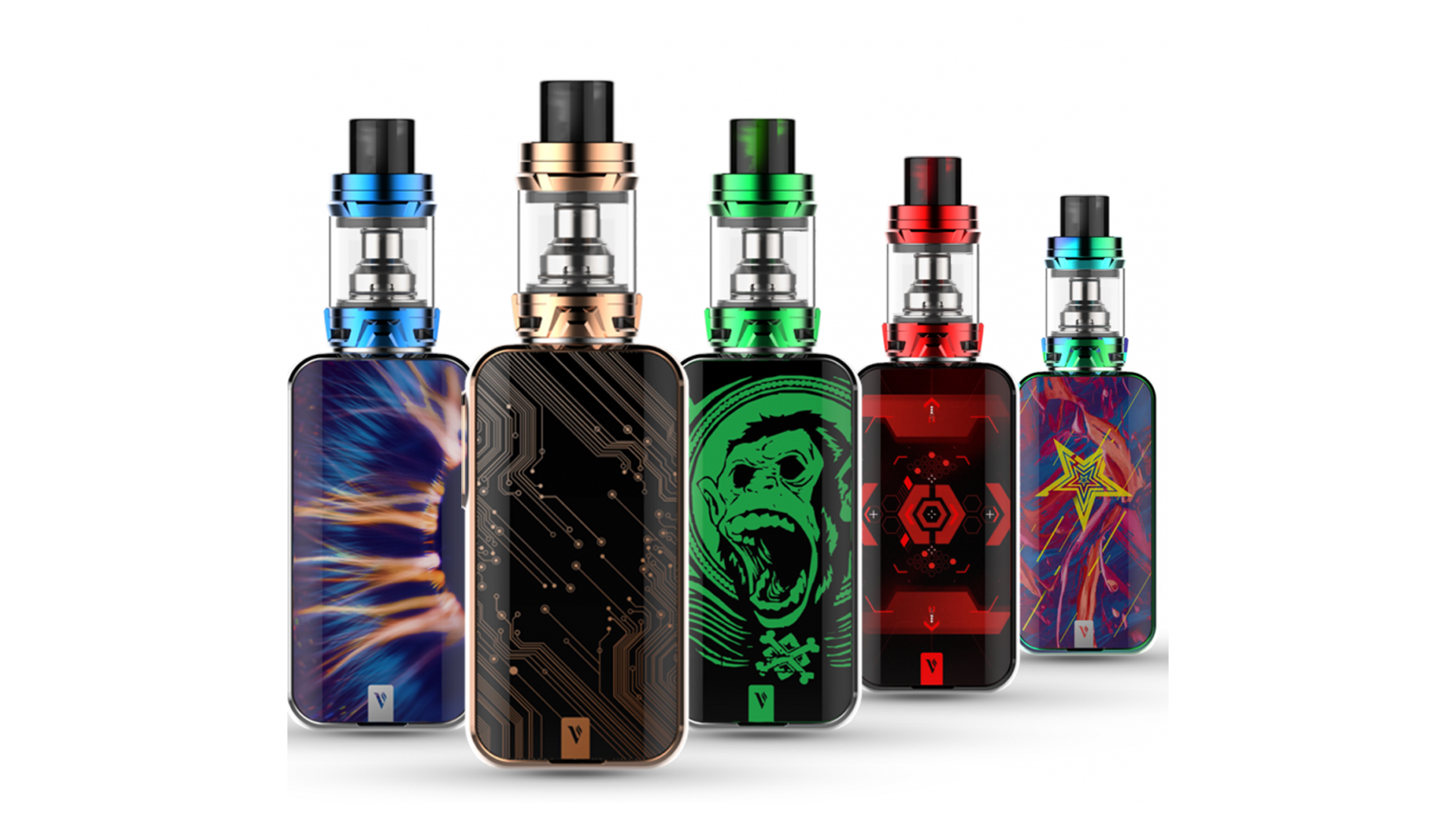
Refillable vaping devices are de rigueur for 'cloud chasers'
Most refillable models use a screw-in atomizer that encompasses a heating coil and a transparent e-liquid chamber. To prepare, fill the chamber with e-liquid, press the button a few times to turn it on, then press and hold the button while drawing on the mouthpiece.
Although pocket sized, most refillable vaporisers are quite chunky in the hand. However, they tend to produce the most amount of vapour and are usually the go-to system for ‘cloud chasers’ who tend to opt for customisable sub-ohm models that are capable of producing massive quantities of vapour from a single draw. I’m talking plumes of the stuff – like an oral bonfire. However, many of the more highfalutin models are so ludicrously complicated you’d need a degree in electrical engineering to operate them.
The main downside with refillable vaporisers is that, depending on usage, the small screw-in coil section (the part that heats the liquid) will need to be replaced roughly every two weeks, but thankfully they’re cheap to buy.
Sealed cartridge vaporisers
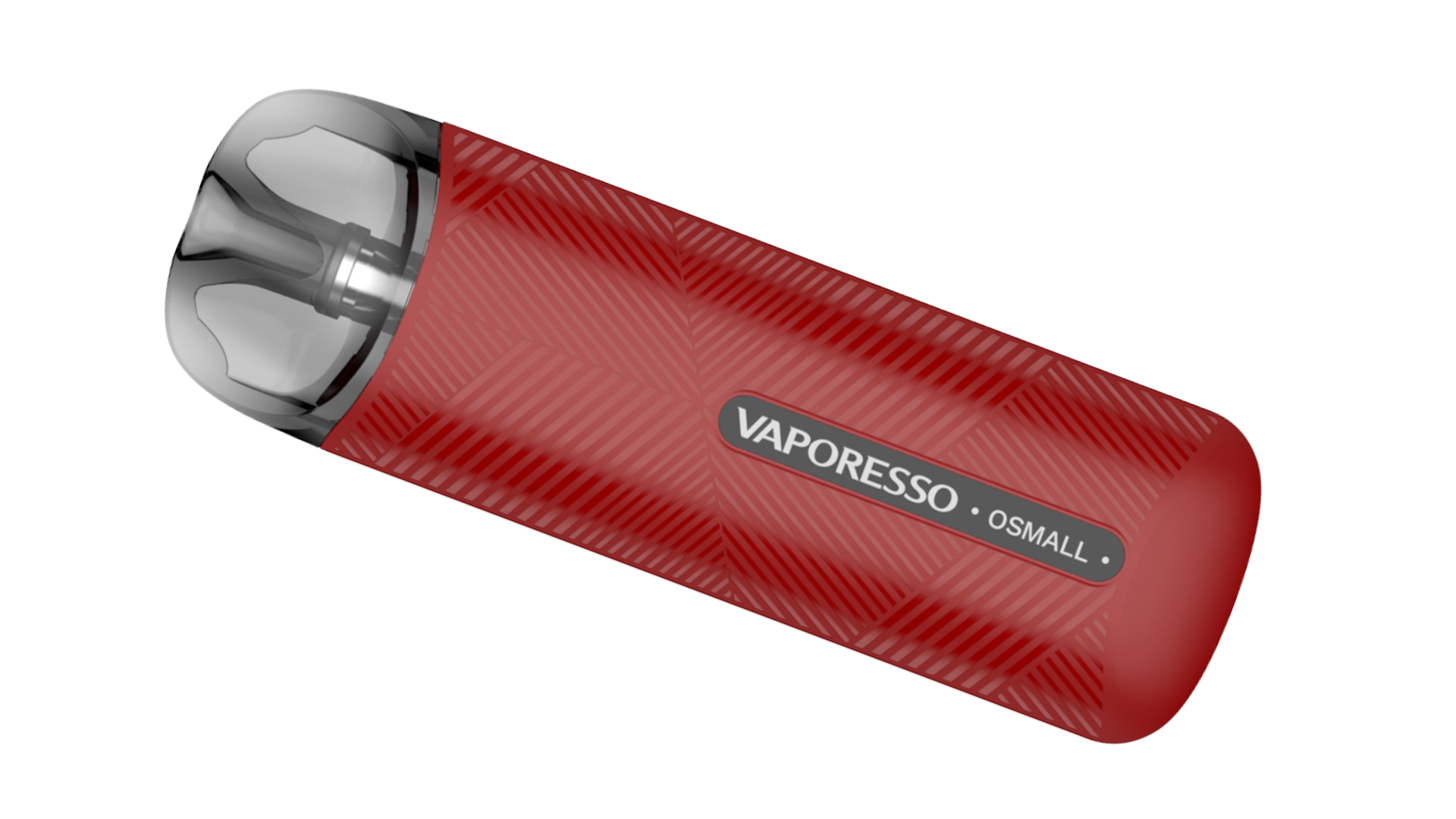
Sealed cartridge vapes are easiest to use
Cartridge-based vaporisers (or vape sticks) use factory-sealed pods for convenience and ease of use. These vaporisers are usually about three to four inches in length and a few centimetres in width so they are far and away the most discreet form of vaporiser to use. Like a capsule-based espresso machine, you simply choose a brand – which you are then locked into – and load in one of their pre-filled e-liquid pods.
Unlike refillable models, pod-based vape sticks allow you to swop flavours instantly and are a great way to enjoy vaping with zero fuss. However they do have their drawbacks because some manufacturers only provide a small handful of flavours (usually around six) and just two or three different nicotine strengths. Nevertheless, some vape producers like Vaporesso have addressed this issue by creating a refillable pod-based system which allows you to choose your own strength and e-liquid flavour and swop cartridges at will.
Watch out for leaks
We should address a particularly strange anomaly that seems to affect the majority of e-liquid vaporisers, even sealed cartridge versions – leaks! Yes, you’d like to think that the e-liquid vaporiser at the bottom of your bag is sitting there doing no harm. However, there’s a fair chance it’s leaked sweet, sticky e-liquid all over your Smythson’s diary. In fact, it takes only a few drops to make the entire bag smell like a Haribo factory. Worse still, the sickly sweet smell is almost impossible to remove.
To date, almost every vaporiser we’ve tested has leaked at some point yet rarely during the first week or so of ownership. It only happens when the product lies on its side – which is precisely how it will inevitably end up if stored in a large pocket or handbag. Most manufacturers are aware of this and some now produce models that are said to be leak free but the jury’s still out.
Heated tobacco vaporisers
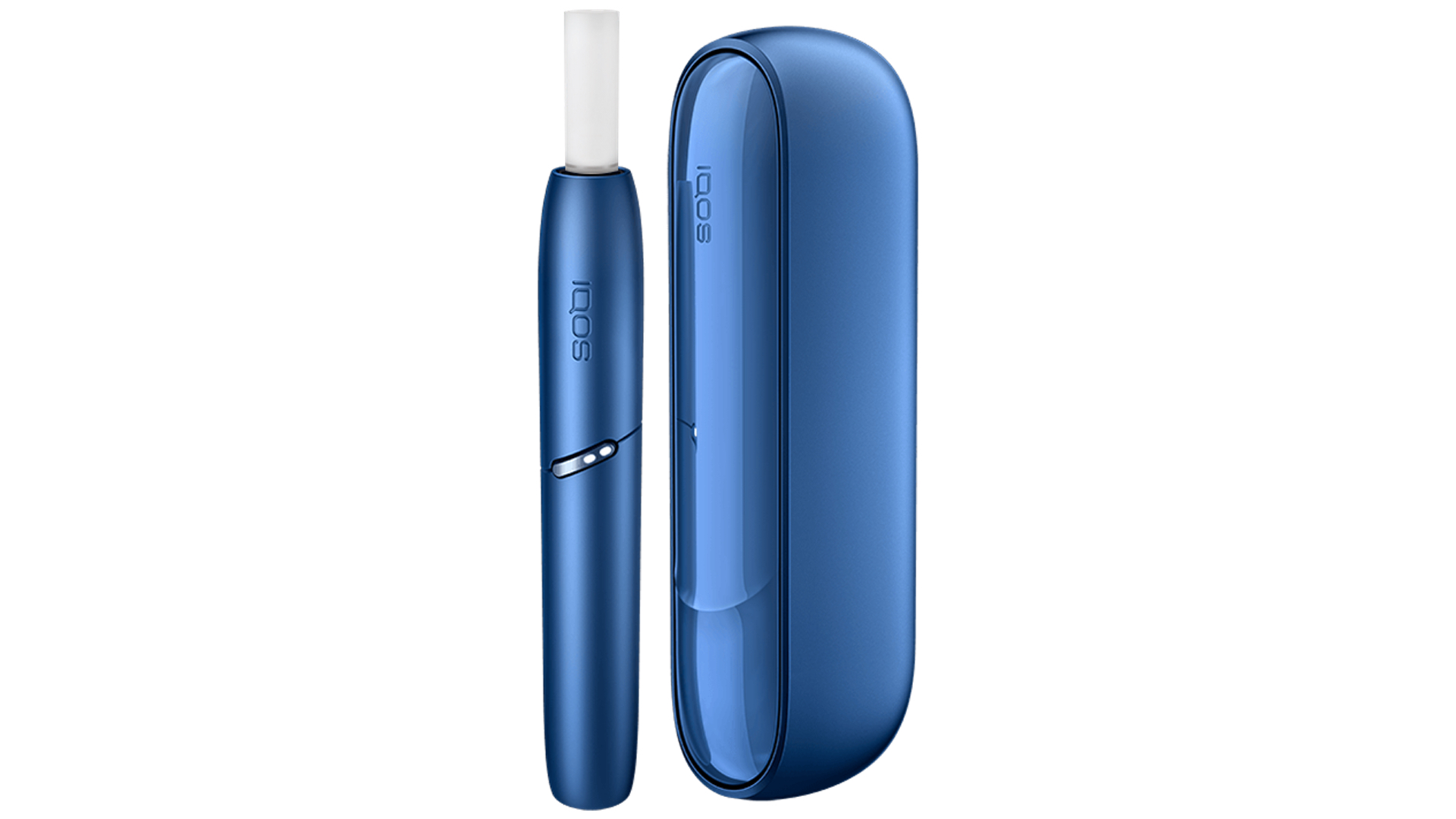
The IQOS system is the closest alternative to smoking a real cigarette
While e-liquid vaporisers provide nicotine, a throat hit, plenty of vapour and, in some instances, a vague, synthetic taste of tobacco, they still don’t accurately replicate the true experience and taste of smoking a bona fide cigarette. Hence, tobacco company Philip Morris and newbie Ploom have both launched their own ‘heat-not-burn’ devices that use proper tobacco-filled cigarettes for full-bodied tobacco flavour.
Heat-not-burn devices like the IQOS and Ploom systems heat miniature tobacco sticks to 350˚C, which is below the temperature at which tobacco burns (around 800˚C). This means they don’t produce tar which is one of the most dangerous byproducts of cigarettes. Nevertheless, they allegedly still produce a wide range of other damaging toxins so you should be aware of that if thinking of dipping your toes in.
In their favour, tobacco sticks replicate the experience of cigarette smoking exceptionally well. They produce small amounts of vapour so you can actually see ‘smoke’ coming out of the mouth as you exhale, they taste much more like cigarettes (Marlboro in the case of IQOS), and they provide a grip in the throat. Thankfully, they don’t make your clothes smell like an ashtray because the vapour quickly evaporates, leaving only a faint odour which soon dissipates.
Loose leaf vaporisers
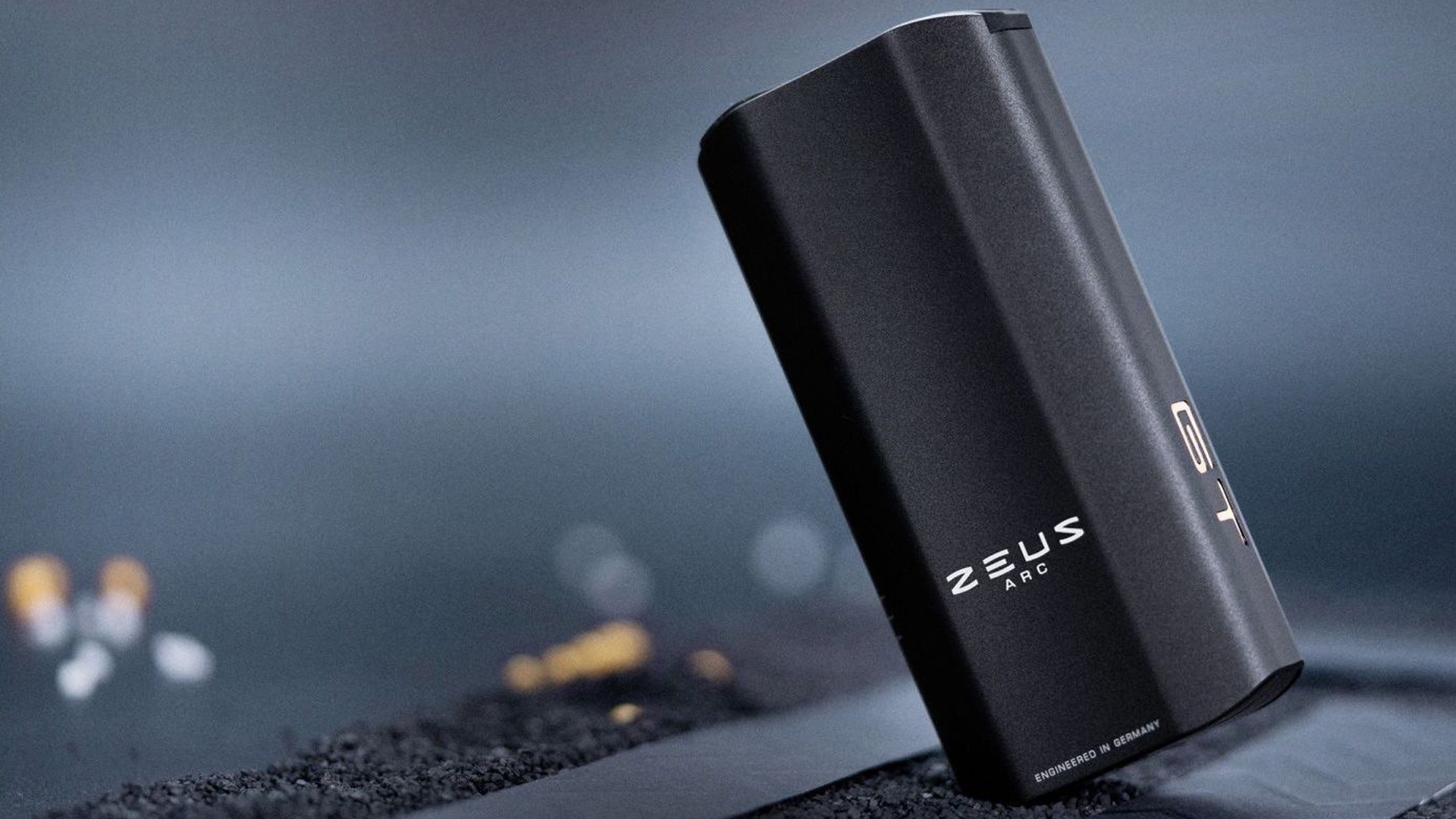
Loose leaf vaporisers are perfect for puffing on herbs
Some vaporisers are designed to heat dry herbs so if you prefer to puff on a variety of herbal blends, including whacky baccy, then this type of vaporiser may be for you. Herbal vaporisers comprise a heating element and a tiny pot for your herb of choice. Simply fire it up and the loose leaves are heated to between 185˚C and 225˚C. You don’t get very much vapour with these types of devices but you can certainly taste the results and, in the case of cannabis, feel the effect.
Now you know a bit more about vaping and vaporisers, head over to our handy guide to the Best Vaporisers
WHAT IS E-LIQUID?
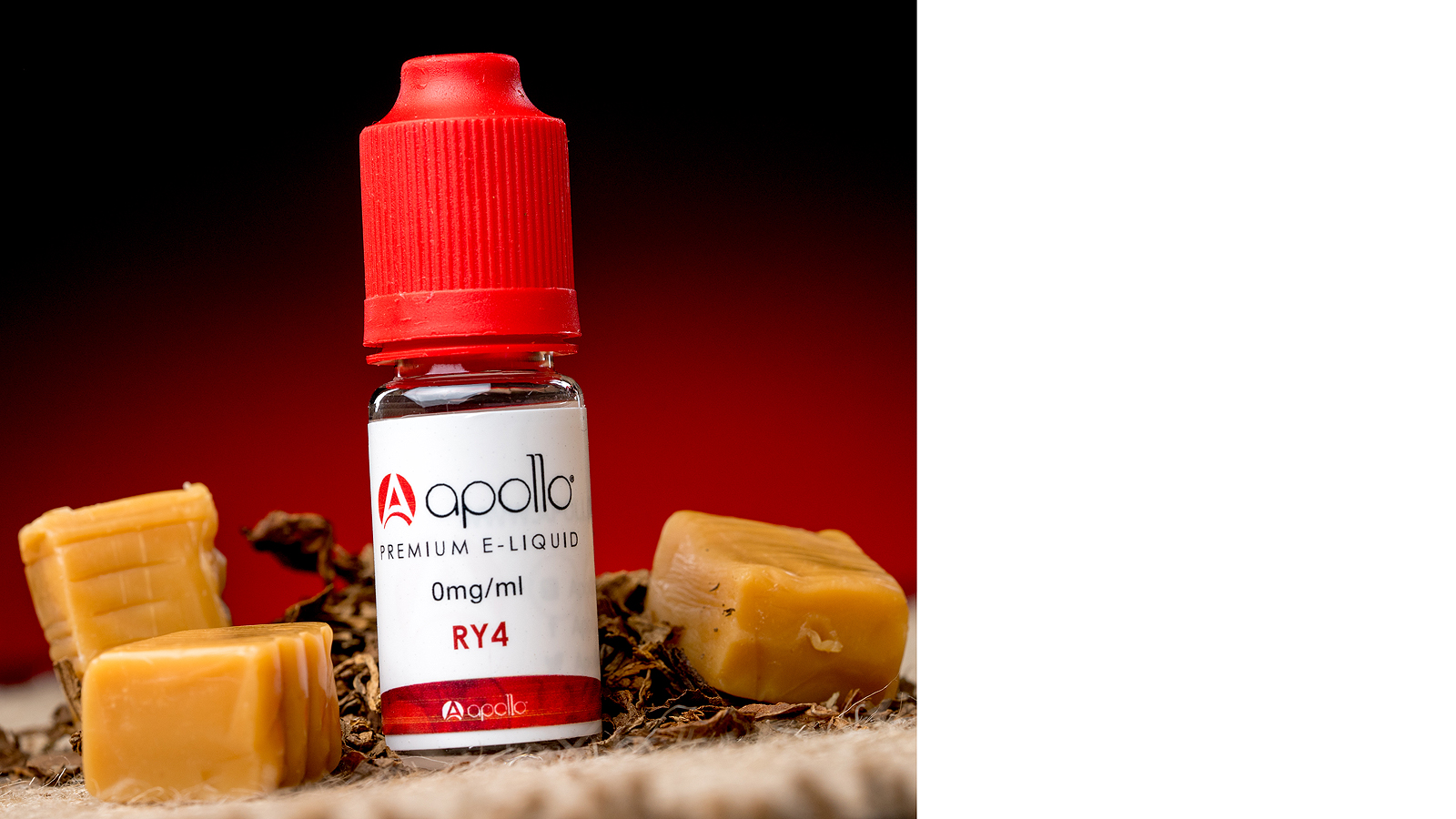
Most vaporisers use a liquid suspension called e-liquid to deliver nicotine, throat hit and flavour. The vast majority of e-liquids comprise vegetable glycerin (VG), propylene glycol (PG) and nicotine.
VG is a thick, sticky, sweet liquid that produces maximum vapour at the expense of throat grip and flavour. Hence, E-liquids with higher VG to PG ratios are preferred by ardent cloud chasers who tend to use the direct to lung technique (DTL), a method that involves literally sucking in a full lungful of vapour as if breathing through a pipe.
PG liquid, on the other hand, provides a much better throat hit similar to that of a tobacco cigarette. E-liquids with a higher PG ratio are therefore better suited to those more used to the mouth to lung (MTL) technique of cigarette smoking.
In a nutshell, a VG50/PG50 mix is best for those who like an intense flavour as well as a throat hit, while a PG20/VG80 provides a much smoother inhale with bigger clouds and a mild flavour.
Nicotine is the final ingredient that indicates the amount of throat grip and overall satisfaction. As a general rule, consider choosing a 3mg e-liquid if you only smoked one or two cigarettes a day, 6mg if you smoked under 10 per day and want a decent throat hit, 12mg if you were up to and above 20 a day and 18mg and higher if you puffed like a chimney.
Find out more about e-liquid and discover our favourite flavours
Derek (aka Delbert, Delvis, Delphinium, Delboy etc) specialises in home and outdoor wares, from coffee machines, white appliances and vacs to drones, garden gear and BBQs. He has been writing for more years than anyone can remember, starting at the legendary Time Out magazine – the original, London version – on a typewriter! He now writes for T3 between playing drums with his bandmates in Red Box (redboxmusic).
-
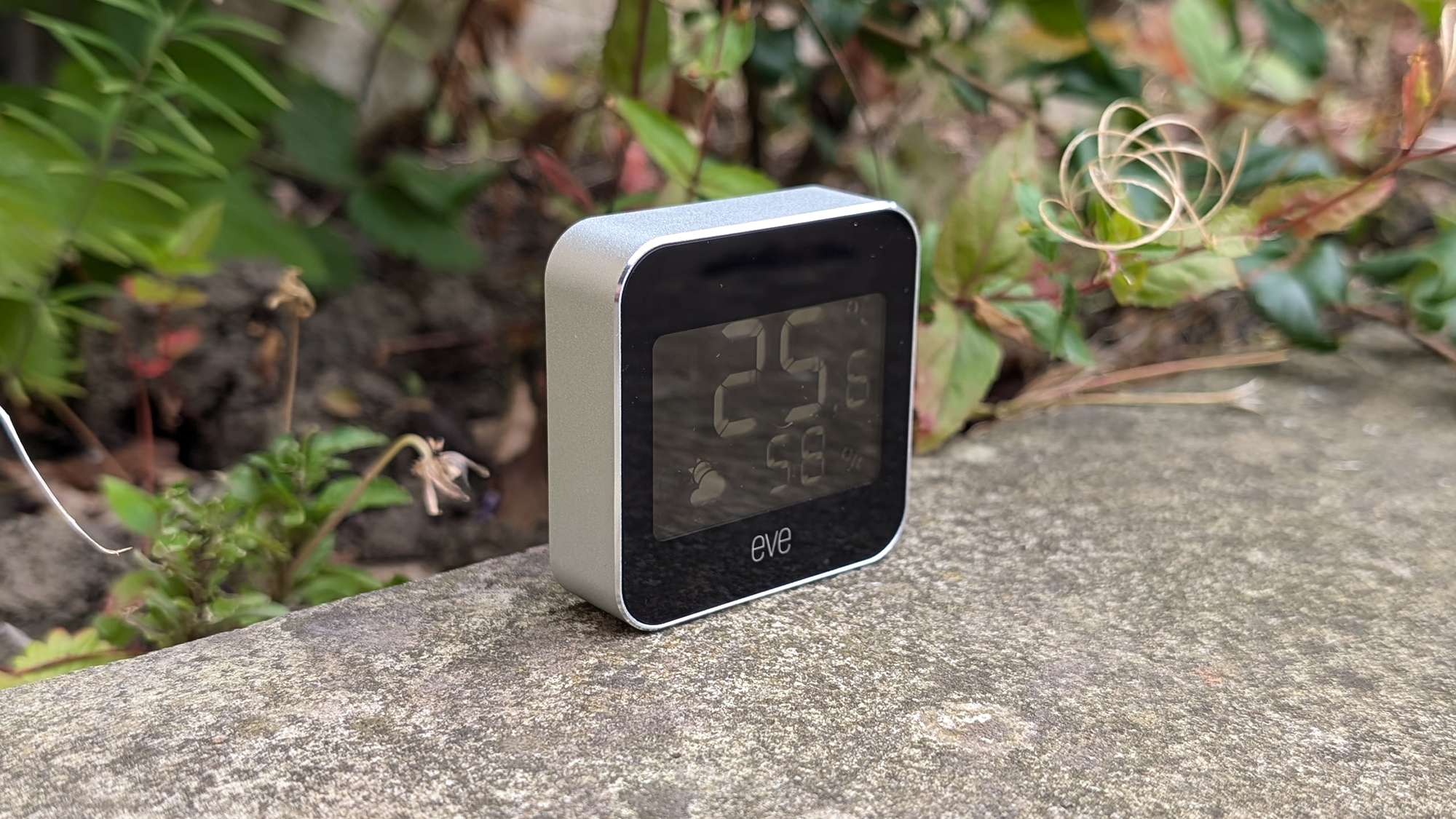 Eve Weather review: a compact, connected weather station for your smart home
Eve Weather review: a compact, connected weather station for your smart homeTemperature, humidity, and air pressure readings from your own little weather station
By David Nield
-
 Best robot lawn mower 2025: autonomous mowers that cut the grass so you don't have to
Best robot lawn mower 2025: autonomous mowers that cut the grass so you don't have toThese are the best robotic sward scythes to keep your lawn in tip-top condition while you sit back and relax
By Derek Adams
-
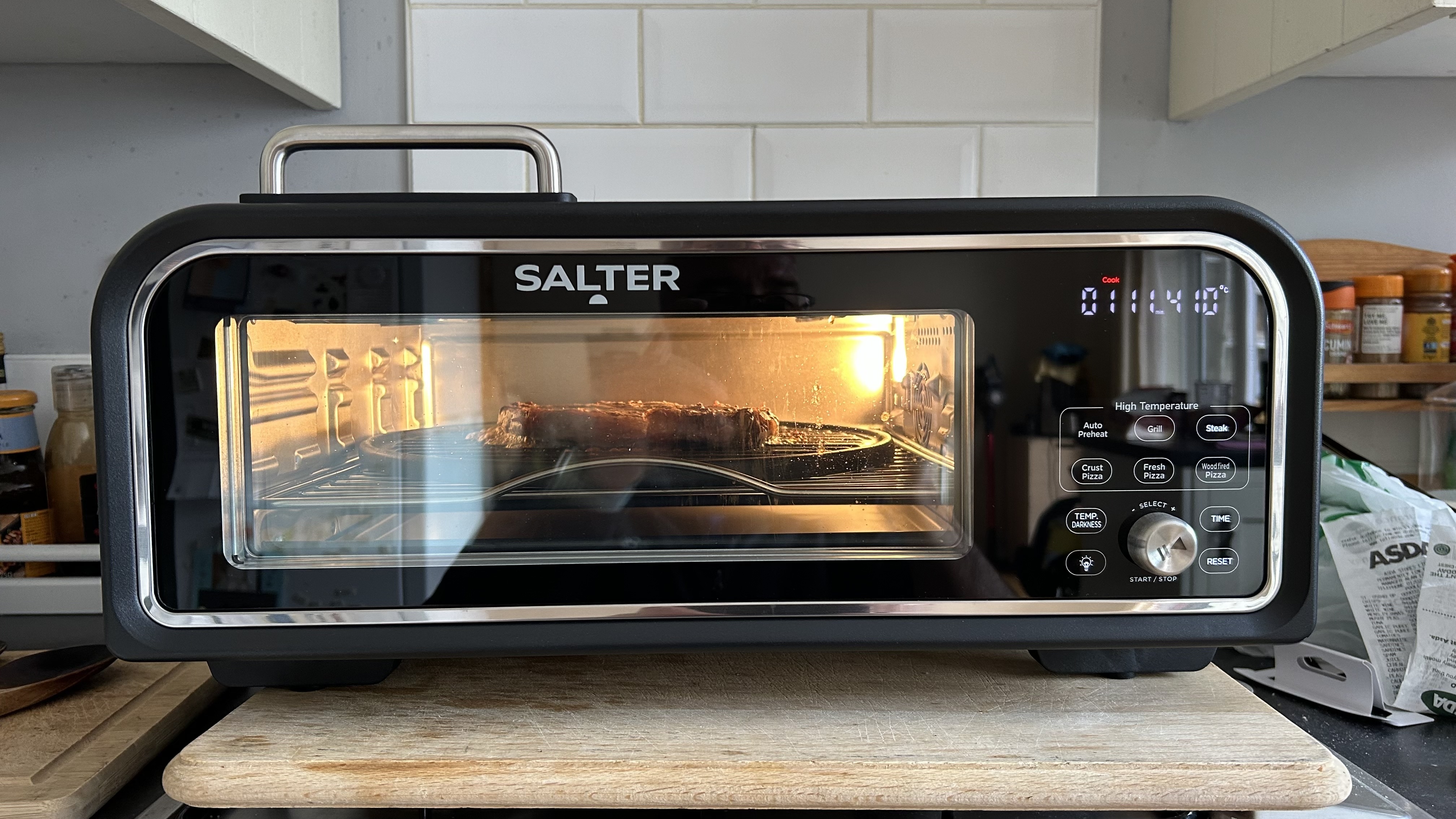 Salter RapidCook 400 Digital Air Fryer Oven review: great for steak and pizzas
Salter RapidCook 400 Digital Air Fryer Oven review: great for steak and pizzasThe Salter RapidCook 400 Digital Air Fryer Oven is big and heavy, but it’s also brilliant for cooking all sorts quickly at high heat
By Rob Clymo
-
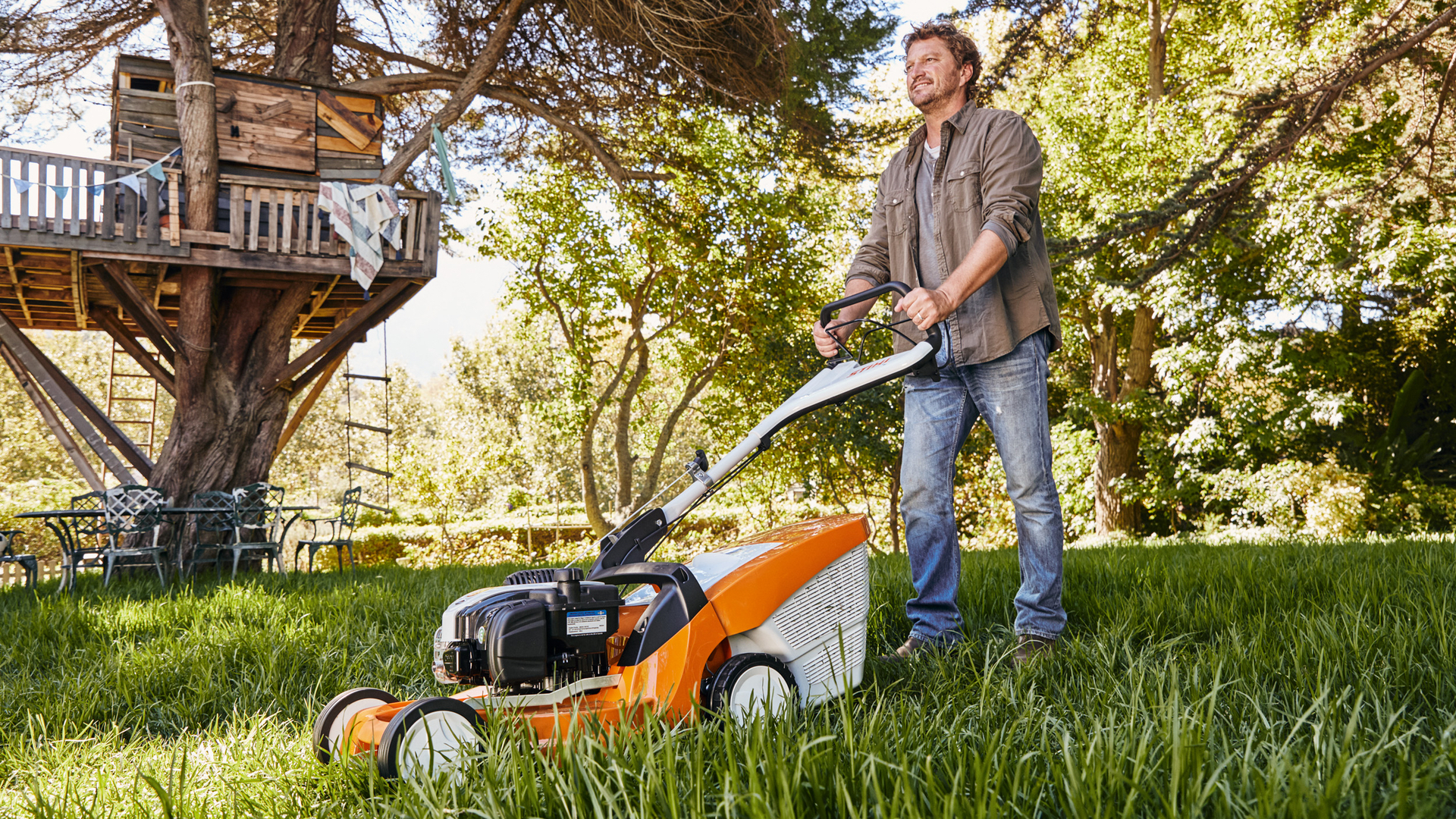 Best petrol lawn mower 2025: rugged lawn mowers for larger gardens
Best petrol lawn mower 2025: rugged lawn mowers for larger gardensTrim the sward with one of these top-rated petrol-powered lawn mowers
By Lizzie Wilmot
-
 Best pizza ovens 2025: enjoy the crisp, crunch and gooeyness of freshly-baked pizza
Best pizza ovens 2025: enjoy the crisp, crunch and gooeyness of freshly-baked pizzaFind the best indoor and outdoor domestic pizza ovens to make your al fresco bash go off without a hitch
By Derek Adams
-
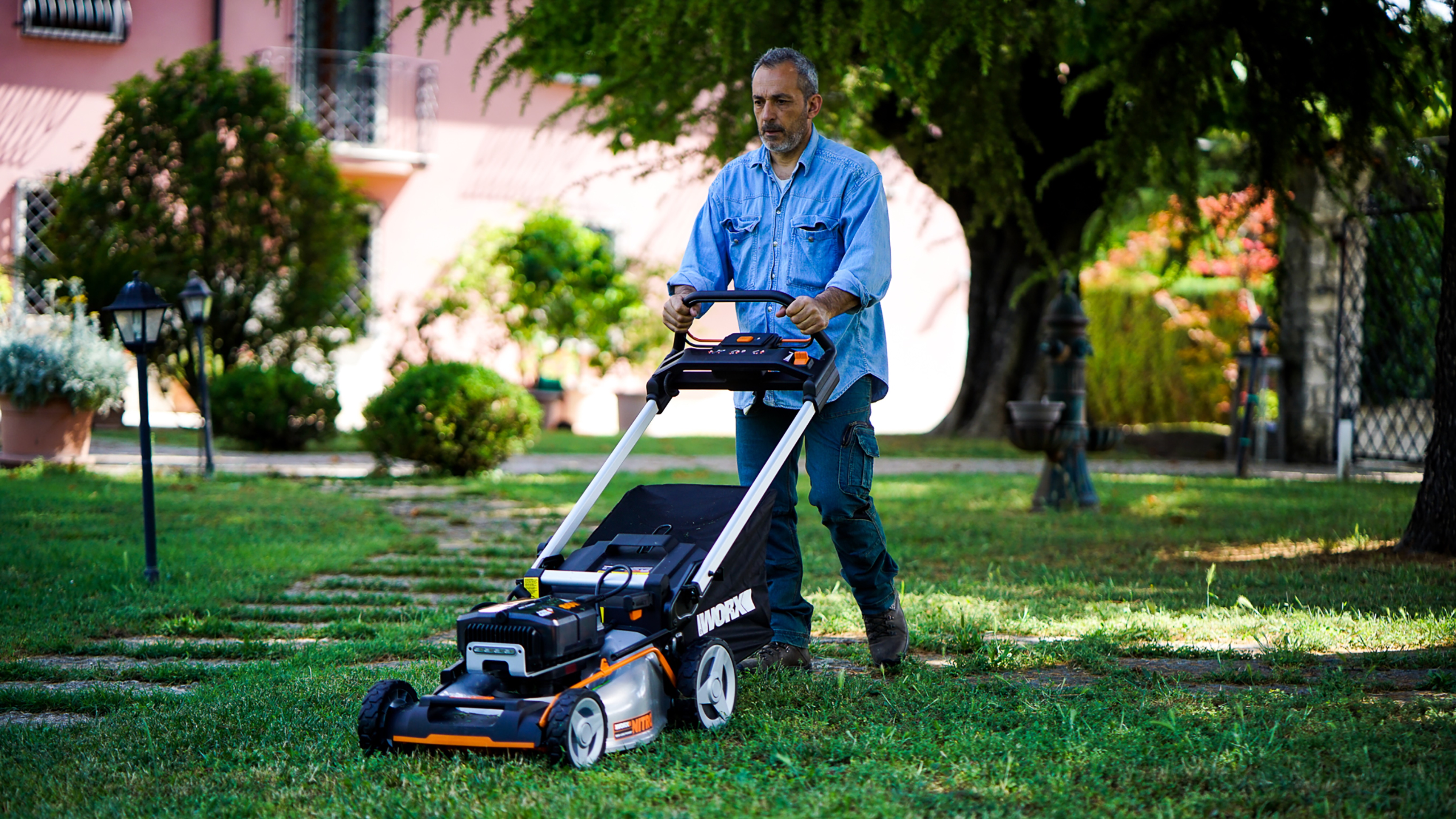 Best cordless lawn mower 2025: top battery-powered trimmers that tackle all types of turf
Best cordless lawn mower 2025: top battery-powered trimmers that tackle all types of turfReplace your rusty old mower and embrace the time-saving pleasures of the best cordless lawn mowers
By Lizzie Wilmot
-
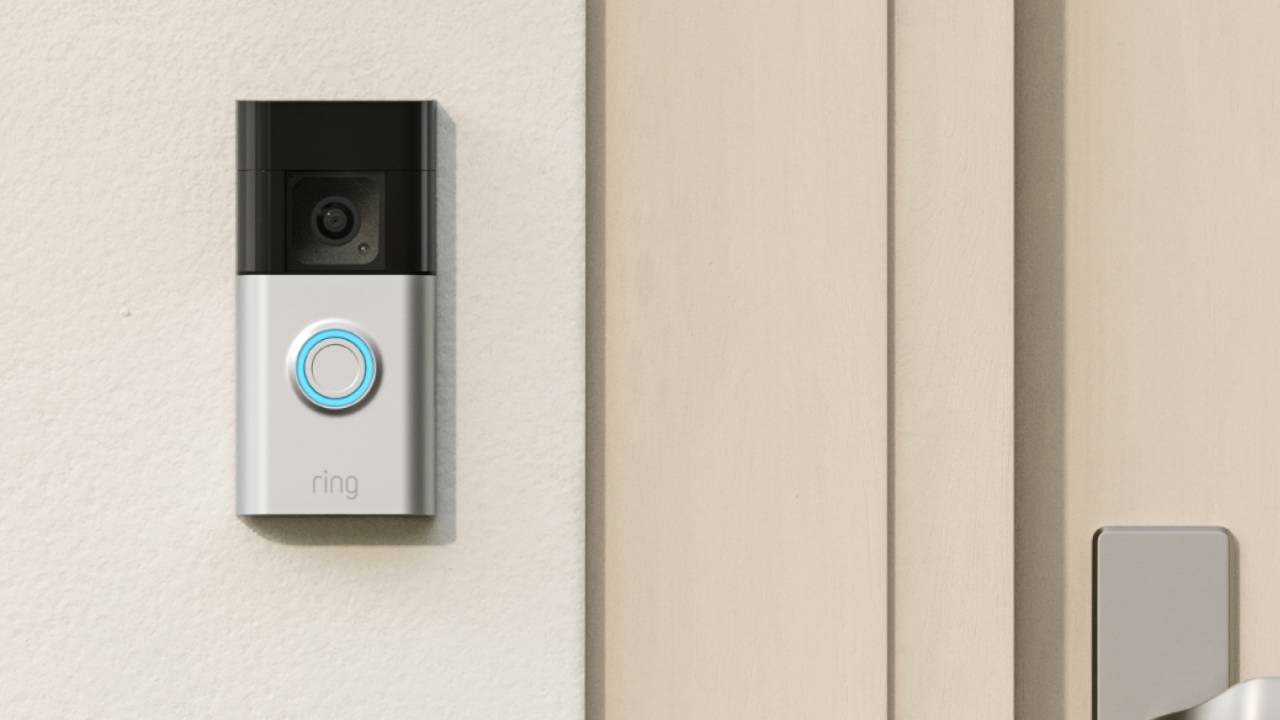 Best video doorbell 2025: who’s that ringing my bell?
Best video doorbell 2025: who’s that ringing my bell?Boost your home security with the best video doorbell, including the top brands such as Ring and Google plus many budget options
By Bethan Girdler-Maslen
-
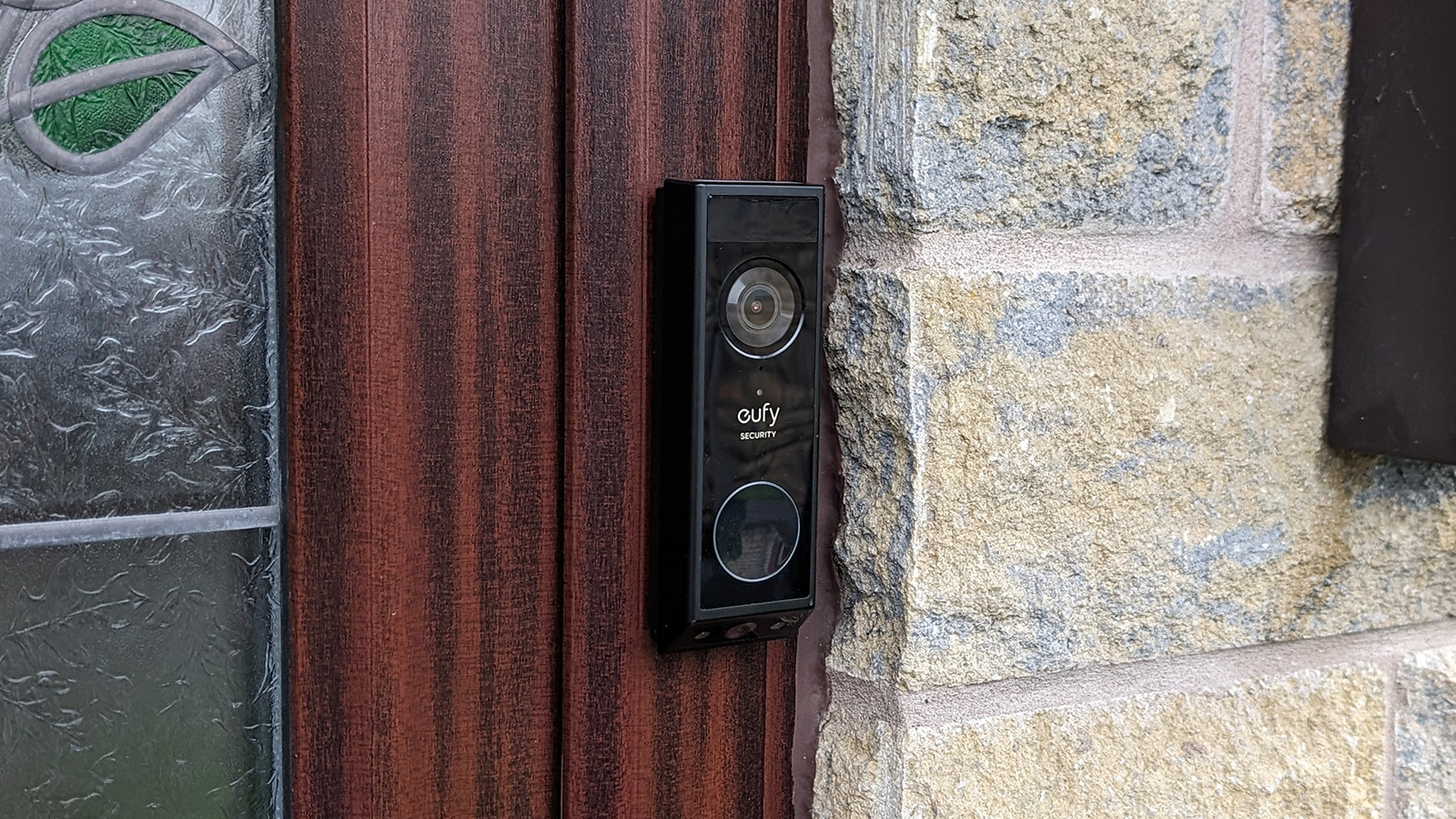
 eufy E340 Video Doorbell review: dual cameras for a better view
eufy E340 Video Doorbell review: dual cameras for a better viewThe E340 impresses in every area – and there are no ongoing costs
By David Nield
